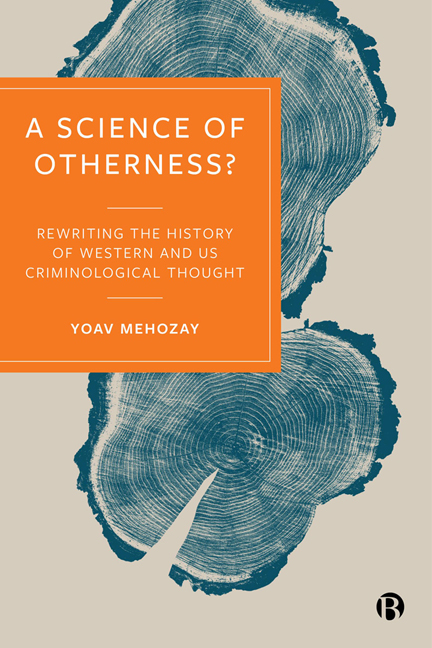Book contents
- Frontmatter
- Dedication
- Contents
- Acknowledgements
- 1 Introduction: Criminology as Otherness?
- 2 The Classical School: Otherness as an Ideology of an Imaginary Bourgeois Society
- 3 The Early Days of Positivist Criminology: An Ideology of Universalism and Otherness
- 4 Two Versions of Otherness: Between Eugenics and Modernization Theory
- 5 Otherness as Subculture
- 6 Managing the Other: Otherness in Practice
- 7 Conclusion: A Science of Otherness?
- Notes
- References
- Index
1 - Introduction: Criminology as Otherness?
Published online by Cambridge University Press: 27 March 2024
- Frontmatter
- Dedication
- Contents
- Acknowledgements
- 1 Introduction: Criminology as Otherness?
- 2 The Classical School: Otherness as an Ideology of an Imaginary Bourgeois Society
- 3 The Early Days of Positivist Criminology: An Ideology of Universalism and Otherness
- 4 Two Versions of Otherness: Between Eugenics and Modernization Theory
- 5 Otherness as Subculture
- 6 Managing the Other: Otherness in Practice
- 7 Conclusion: A Science of Otherness?
- Notes
- References
- Index
Summary
Criminology and penology, as realms of knowledge, are at the heart of the human condition, and crucial for the understanding of people as social beings. This was true when knowledge of sin and its punishment was advanced through theological language – think about the first stories of the Old Testament – and remained true when it took the form of scientific knowledge. This knowledge plays a pivotal role, albeit not an exclusive one, in shaping regimes of social control. It provides a conceptual framework as well as vital legitimacy for social organization and governance, essential for setting norms and rules, articulating epistemes for human behaviour and action, and devising justifiable sanctions and use of violence against those who are regarded as posing a threat or violating the public peace. Moreover, criminological knowledge, which is diverse and ever-evolving, has played a key role in absorbing, reflecting, reacting to, and shaping the great transformations of modernity.
It is thus rather surprising that such a pivotal realm of knowledge has not received much reflexive and historical attention. Indeed, relatively little has been written on the history of criminology (Rafter: 2011: 143). But, as Nicole Rafter commented, ‘If criminology is to fully mature as a field of study, it needs to develop a clear sense of its own history’ (2004: 736). Recent scholarship is starting to fill this gap – see, for example, ‘New directions in the history of criminology’, written by Richard Wetzell (2017), and David Churchill, Henry Yeomans and Iain Channing’s Historical Criminology (2021), which also offers a good review of prior works. Still, there have been relatively few macro introspective reflections about the state, nature, and meaning of criminological thought. In this respect, prominent voices within criminology, across a spectrum of analytical orientations, have expressed frustration at the field’s limited historical analysis and self-examination, and have called for more scholarly work (see, inter alia, Nelken, 1994; Braithwaite, 2000; Savelsberg and Sampson, 2002; Laub, 2004; Weisburd and Piquero, 2008; Bursik, 2009; Hagan, 2010; Cullen, 2011).
This book aims to advance an introspective account of the state of the field of Western criminology, centring on the production of criminological knowledge since the classical school, especially as it developed over the last century in the United States.
- Type
- Chapter
- Information
- A Science of Otherness?Rereading the History of Western and US Criminological Thought, pp. 1 - 20Publisher: Bristol University PressPrint publication year: 2023



